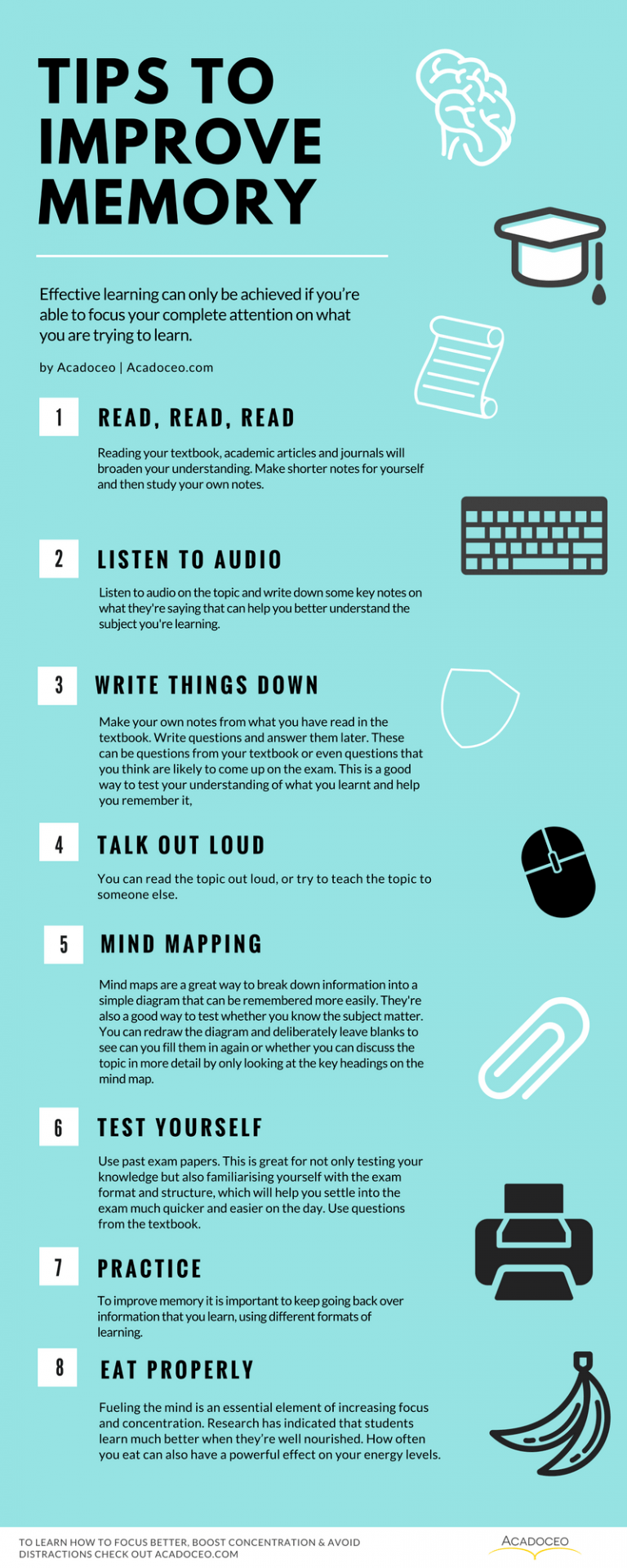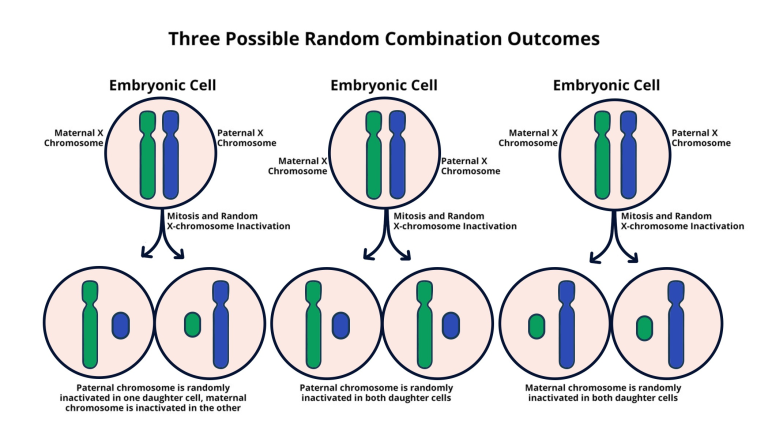Improving memory is essential in our fast-paced world, where the ability to recall information can enhance both our personal and professional lives. Implementing effective memory techniques can significantly boost your cognitive functions, making it easier to retain and recall facts as needed. By engaging in brain training exercises and adopting innovative recall strategies, you can transform your mental capabilities and enhance overall memory performance. Moreover, utilizing memory improvement tips rooted in neuroscience can lead to notable cognitive enhancement, ensuring that you never miss an important detail again. Discover the science behind these techniques and unlock the full potential of your memory.
Enhancing one’s ability to remember is a crucial skill that benefits all aspects of life, whether it’s learning new information or simply recalling a friend’s name. Techniques for boosting recollection, including various cognitive exercises and effective mnemonic devices, can aid individuals seeking to sharpen their mental acuity. Mastering these skills not only supports academic and career aspirations but also improves day-to-day interactions. The journey to better memory begins with understanding the mechanics of memory and applying useful strategies for recall. Embrace the art of memorization and watch how it transforms your cognitive landscape.
Understanding Memory: The Science Behind Recall
Memory is a complex function of the brain that involves encoding, storing, and retrieving information. To truly understand memory, it is essential to grasp the different types of memory, such as short-term and long-term memory. Studies have shown that memory operates in stages; first, information must be processed through sensory memory, then to short-term memory before reaching long-term storage. Having insight into these processes can help individuals employ effective memory techniques.
Brain scientists like Andrew Budson and Elizabeth Kensinger highlight that memory isn’t just a passive repository of information but an active process. During recall, our brains reconstruct memories which can change them over time, leading to both enhancements and distortions. This understanding sets the groundwork for utilizing cognitive enhancement strategies to improve memory retention, especially under pressure, enhancing overall recall ability when it matters most.
Techniques for Improving Memory
Improving memory can often feel like a daunting task, but practical memory improvement tips can make a significant difference. Techniques such as the ‘method of loci’ or memory palace are powerful strategies that involve visualizing information in relation to familiar locations or landmarks. By associating new data with these visual cues, individuals can enhance their recall ability significantly.
Another effective strategy involves brain training exercises that focus specifically on sharpening cognitive function. Engaging in puzzles, memory games, and activities that stimulate mental processes helps reinforce neural pathways. Regular practice of these memory techniques not only boosts recall but also contributes to overall brain health and cognitive performance.
Cognitive Enhancement Strategies for Everyday Life
Incorporating cognitive enhancement techniques into your daily routine can lead to substantial improvements in memory. Simple practices, such as prioritizing sleep and maintaining a balanced diet rich in nutrients, play a critical role in supporting cognitive functions. Prior research indicates that sleep is essential for memory consolidation – the process that transfers short-term memories into long-term storage.
Additionally, regular physical exercise is scientifically linked to memory improvement and enhanced brain function. Engaging in physical activities releases growth factors in the brain that not only promote new neuron growth but also increase the brain’s volume, particularly in areas related to memory and learning.
The Role of Stress in Memory Performance
Stress is often seen as the enemy of effective memory recall; however, it can also heighten our ability to remember critical information in high-pressure situations. The ‘fight-or-flight’ response can enhance focus and memory recall under stress, crucial during exams or presentations. This physiological reaction can trigger heightened alertness, allowing individuals to retrieve memories that might otherwise remain dormant.
While moderate stress can enhance recall temporarily, chronic stress can lead to detrimental effects on cognitive functions, leading to memory impairments. It is crucial to adopt stress management techniques, such as mindfulness or relaxation exercises, to maintain a balance for optimal cognitive performance.
Effective Recall Strategies in Academic Settings
In academic environments, employing effective recall strategies can significantly impact performance. Techniques such as spaced repetition, which involves reviewing information over extended periods rather than cramming, have been proven to enhance memory retention. This method leverages the brain’s natural ability to strengthen connections through consistent retrieval practice.
Additionally, summarizing information and teaching it to others are effective techniques. Summarizing forces learners to process information more deeply, while teaching others allows them to articulate their understanding, further reinforcing memory pathways.
Utilizing Visualization for Enhanced Recall
Visualization plays a crucial role in improving memory through techniques such as imagery and associative learning. By creating vivid mental images of the information one wants to remember, individuals can significantly improve their ability to recall that information later. This technique aligns with the method of loci, linking ideas and concepts with specific visual cues in one’s mind.
Moreover, the brain retains visual information more effectively than text alone. Utilizing diagrams, charts, and infographics can enhance memory retention by appealing to visual learning styles. Investing time in creating mental images can turn abstract concepts into memorable narratives, aiding both recall and understanding.
How Nutrition Affects Memory and Recall
Nutrition plays an indispensable role in cognitive function and memory performance. A diet high in omega-3 fatty acids, antioxidants, and vitamins has been linked to improved cognitive abilities and memory retention. Foods such as fatty fish, blueberries, and nuts are rich in nutrients that support optimal brain health and function.
On the other hand, certain substances like excessive caffeine or sugar can impair memory and cognitive performance. Understanding how specific foods affect the brain empowers individuals to make informed dietary choices that promote not only better memory retention but also overall mental clarity and health.
Overcoming Memory Blocks with Specific Techniques
Memory blocks can be frustrating, especially when trying to recall important details. A common strategy to overcome these blocks involves using mnemonic devices, which are techniques that aid memory retention through association. Examples include acronyms, rhymes, or chunking information into smaller, manageable units. These methods anchor new information to pre-existing knowledge, easing the recall process.
Additionally, taking breaks during long study sessions can help reset the mind and improve focus. Engaging in short periods of physical activity during these breaks can also enhance blood flow to the brain, leading to better recall and retention when returning to study.
The Impact of Multitasking on Memory Performance
Multitasking, while often viewed as a means to increase productivity, can impede memory performance. Research has shown that attempting to juggle multiple tasks at once may degrade both memory and cognitive abilities. Focusing on a single task allows for more profound engagement and retention of information, leading to improved recall capabilities.
Therefore, it is advisable to minimize distractions during critical tasks that require heavy mental lifting. Implementing focused work sessions without interruptions can help reinforce memory and enhance overall cognitive performance.
Long-term Memory Improvement Strategies
For lasting memory improvement, consistency in practice is vital. Long-term strategies include regular mental workouts like learning new languages, playing musical instruments, or engaging in challenging puzzles. Consistent cognitive challenges stimulate neural growth and foster memory retention.
Adopting a lifelong learning approach, where individuals continuously seek new knowledge and skills, further solidifies memory pathways. Furthermore, engaging socially through discussions and debates can enhance recall by requiring individuals to apply and articulate what they’ve learned.
Frequently Asked Questions
What are some effective memory techniques for improving memory retention?
There are several effective memory techniques that can significantly enhance memory retention. Techniques like mnemonic devices, chunking information, and the method of loci can help organize and retrieve information more easily. Additionally, regular practice and spaced repetition are crucial for consolidating memories and improving recall.
How can brain training exercises contribute to improving memory?
Brain training exercises are designed to enhance cognitive functions, including memory. Activities such as puzzles, memory matching games, and brain training apps can stimulate the brain and promote neuroplasticity, leading to better memory and cognitive performance over time.
What are some recall strategies to help remember names and faces?
To improve recall of names and faces, you can use strategies such as repeating the name during your introduction, associating the name with a visual feature, or visualizing the name written on the person’s forehead. Engaging with the person and asking questions can also reinforce the memory.
What memory improvement tips are recommended for students?
Students can enhance their memory by practicing active learning techniques, such as summarizing information in their own words, teaching concepts to others, and using visualization techniques. Keeping study sessions short and spaced out (spaced repetition) can also lead to better retention.
Can cognitive enhancement supplements aid in improving memory?
Some cognitive enhancement supplements, such as omega-3 fatty acids and ginkgo biloba, may support memory and brain health. However, it’s essential to consult a healthcare professional before starting any supplement, as effects can vary and more research is needed to confirm their efficacy.
How does sleep impact memory improvement?
Sleep plays a crucial role in memory improvement. During sleep, the brain processes and consolidates memories from the day, enhancing recall and learning. Ensure adequate sleep to maximize cognitive function and memory retention.
What lifestyle changes can lead to significant improvements in memory?
Lifestyle changes such as regular physical exercise, a balanced diet rich in antioxidants and omega-3 fatty acids, stress management techniques like meditation, and social engagement can all contribute to substantial improvements in memory.
Are there specific activities that can improve memory for older adults?
Yes, older adults can benefit from activities that stimulate the brain, such as reading, engaging in stimulating conversations, doing crosswords or Sudoku, and learning new skills or hobbies, which can all play a part in improving memory.
What is the method of loci and how does it help in improving memory?
The method of loci, or memory palace, is a mnemonic device that involves visualizing a familiar place and associating information with specific locations within that setting. This technique helps create strong mental connections, making it easier to recall information later.
Can stress management techniques effectively enhance my memory?
Yes, managing stress is crucial for memory enhancement. High stress levels can impair cognitive functions and memory. Techniques such as mindfulness meditation, deep breathing exercises, and regular physical activity can help reduce stress and improve overall memory performance.
| Key Points | Details |
|---|---|
| Better Memory Techniques | Practicing new skills regularly can lead to mastery. |
| Impact of Exercise on Memory | Exercise can release brain growth factors and improve memory. |
| Memory Retrieval Effects | Retrieving memories may change them each time. |
| Influence of Stress on Memory | Stress can enhance memory recall for immediate needs. |
| Memory Techniques | Using the “method of loci” can aid memory through visualization. |
Summary
Improving memory is essential for daily life, whether in social situations or academic settings. The insights shared by brain scientists in their research-oriented guide provide valuable techniques to enhance recall and optimize cognitive performance. By incorporating regular practice, physical exercise, and effective memory techniques, you can strengthen your ability to remember important information when it matters most.





